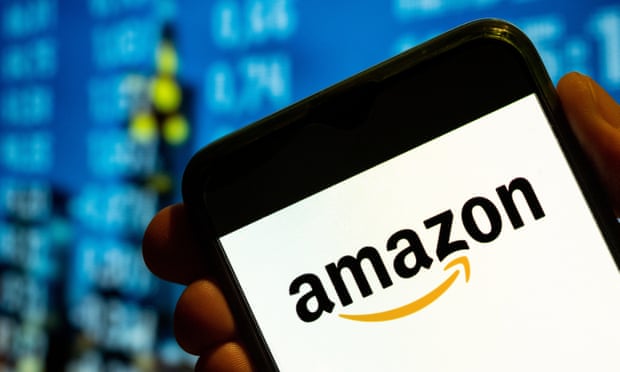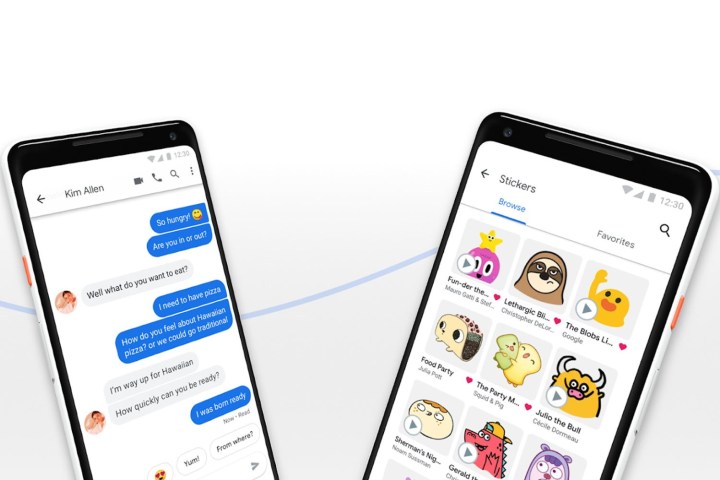Find out the week’s top mobile stories from around the world. Headlines this week include… Australia’s Optus says up to 10 mln customers caught in cyber attack, Meta ordered to pay walkie-talkie app maker Voxer $175M for patent infringement, China’s mobile IoT connection reaches nearly 1.7b and much more.

Australia’s Optus says up to 10 mln customers caught in cyber attack
Reuters
Australian No. 2 telco Optus, owned by Singapore Telecommunications Ltd (STEL.SI), said it will contact up to 10 million customers whose personal details were taken in a “sophisticated” hack, but added no corporate clients were compromised.
Optus chief executive Kelly Bayer Rosmarin said she was angry and sorry that an offshore-based entity had broke into the company’s database of customer information, accessing home addresses, drivers licence and passport numbers in one of the country’s biggest cybersecurity breaches.
Read more…
Meta ordered to pay walkie-talkie app maker Voxer $175M for patent infringement
TechCrunch
A jury in a Texas federal court has ordered Meta to pay walkie-talkie app company Voxer more than $174.5 million in damages, according to court documents filed on Wednesday. Voxer, the creator of the Walkie Talkie app, first filed its lawsuit against Meta (formerly known as Facebook) in 2020 after it accused the company of infringing on its patents and incorporating its technology into Facebook Live and Instagram Live.
Read more…
Ofcom to investigate tech giants’ dominance of cloud computing
Guardian
Regulator’s inquiry will also focus on messaging and smart devices as three ‘hyperscalers’ face scrutiny
Ofcom will investigate the world’s biggest tech companies to ensure their dominance in areas such as cloud computing, messaging and smart devices works for the people and businesses of Britain, the communications regulator has said. The cloud services investigation, which will take priority out of the three issues, will look at Amazon, Microsoft and Google. Over the coming year, the regulator will begin investigating a wider range of digital services. WhatsApp, FaceTime and Zoom will come under the lens, with Ofcom looking at how their market power is affecting traditional calling and messaging, and whether the lack of interoperability “raises potential concerns”.
Read more…
Mobile payment and eWallet use surge in UK
Finextra
Mobile payments are now the predominant form of payment for Brits, with nearly half (43%) making purchases via their mobile on a weekly basis.
That’s according to a new report released by Rapyd, the leading fintech-as-a-service partner, showing that of those who made an e-commerce purchase in the last 90 days, on average, 49% paid with their mobile phones, compared to 47% who used their laptop. Specifically, Rapyd’s analysis finds that clothing, restaurants, groceries and utility bills are the most popular transactions made in the last 90 days, showing that Brits are now preferring to use their mobiles for everything from day to day purchases through to more sensitive transactions.
Read more…
China’s mobile IoT connection reaches nearly 1.7b
China Daily
BEIJING — China’s mobile Internet of things (IoT) has made remarkable progress in network and industrial capability, as well as application development, according to the Ministry of Industry and Information Technology.
By the end of August, the number of mobile IoT connections in China had reached 1.698 billion, surpassing the number of mobile phone users for the first time.
During the same period, the total number of narrowband IoT, 4G base stations, and 5G base stations had reached 755,000, 5.9 million, and 2.1 million, respectively, data from the ministry showed.
Read more…
Digital Financial Inclusion and Security: The Regulation of Mobile Money in Ghana
Carnegie Endowment
The Cybersecurity, Capacity Development, and Financial Inclusion project, or CyberFI, brings together a robust, transparent community of practitioners and researchers working on digital financial inclusion. This series focuses on understanding financial inclusion ecosystems on their own terms—what countries are doing, what is working, and what isn’t. Six country case studies help capture the diversity of financial markets on the African continent: South Africa, Nigeria, Cameroon, Ghana, Uganda, and Zimbabwe.
Ghana’s digital financial services industry, most notably the market for mobile money services, has grown significantly during the pandemic. To achieve full digital financial inclusion, however, the country still must build capacity, skills, trust, and security.
Read more…
Almost 75% brands have been advertising on mobile gaming apps for over a year, says InMobi report
Best Media Info
Almost 75% of brands have been advertising on mobile game apps for more than a year, leading to a two-fold increase in gaming ad spends since the pandemic, as per InMobid’s report.
InMobi, the provider of content, monetisation, and marketing technologies that help businesses fuel growth, has released the findings of its latest ‘Mobile Game Advertising 2022’ report for India.
InMobi surveyed 205 Indian mobile marketing leaders, including senior executives from brands and media organisations, as part of this study. The report also reveals how brands and agencies are addressing the four most common myths associated with mobile game advertising that might be preventing wider adoption.
Read more…
5G uptake doubles but mobile usage gap is still a problem
Telecoms
Separate figures from two different industry groups this week paint a mixed picture of the current state of mobile connectivity and usage.
Using data gathered by Omdia, 5G Americas on Wednesday said that global 5G connections reached 813 million in Q2, up 112 percent year-on-year. The lobby group said connections are on course to top 1 billion by the end of 2022, and are expected to almost double again to nearly 2 billion in 2023. By the end of 2027, 5G Americas predicts global 5G connections will have risen to 5.9 billion.
How do these compare to the other stats that have done the rounds this year? In terms of the 2022 outlook, 5G Americas is very much in sync with Ericsson and the GSMA, which have each predicted in their own individual reports that 5G connections will pass the 1 billion milestone this year.
Read more…
Sorry, Google — Apple is right to keep ignoring RCS for the iPhone
Digital Trends
Despite Google’s continued attempts at public shaming, the iPhone maker has covered its ears and steadily plowed around in building out its own fairly successful messaging service. After a look at the state of RCS in 2022, this may just have been the right choice.
Let’s do a quick recap of what RCS is. It’s an update to the SMS standard that’s powered by a mixture of Google and a handful of global carriers. It brings modern features like typing indicators, read receipts, and high res image support to regular texting. It has been pointedly ignored by Apple, killing its utility as an SMS replacement between iPhones and Android phones.
Read more…
How zero trust can improve mobile security
Venturebeat
Employees’ privacy, personal identities and privileged access credentials are at risk because enterprises are sacrificing security to get more work done. While 85% of enterprises have a dedicated budget for mobile security, just over half, 52%, have sacrificed the security of mobile and IoT devices to “get the job done” and meet tight deadlines or achieve productivity targets. Verizon’s Mobile Security Index (MSI) for 2022 discovered a 22% increase in cyberattacks involving mobile and IoT devices in the last year. Verizon interviewed 632 security and risk professionals based in Australia, the U.K. and the U.S.

/cloudfront-us-east-2.images.arcpublishing.com/reuters/KXBVSZC665O2FNL6AXJHCEMYWU.jpg)












